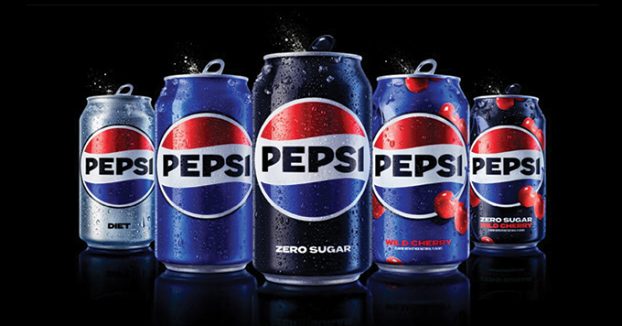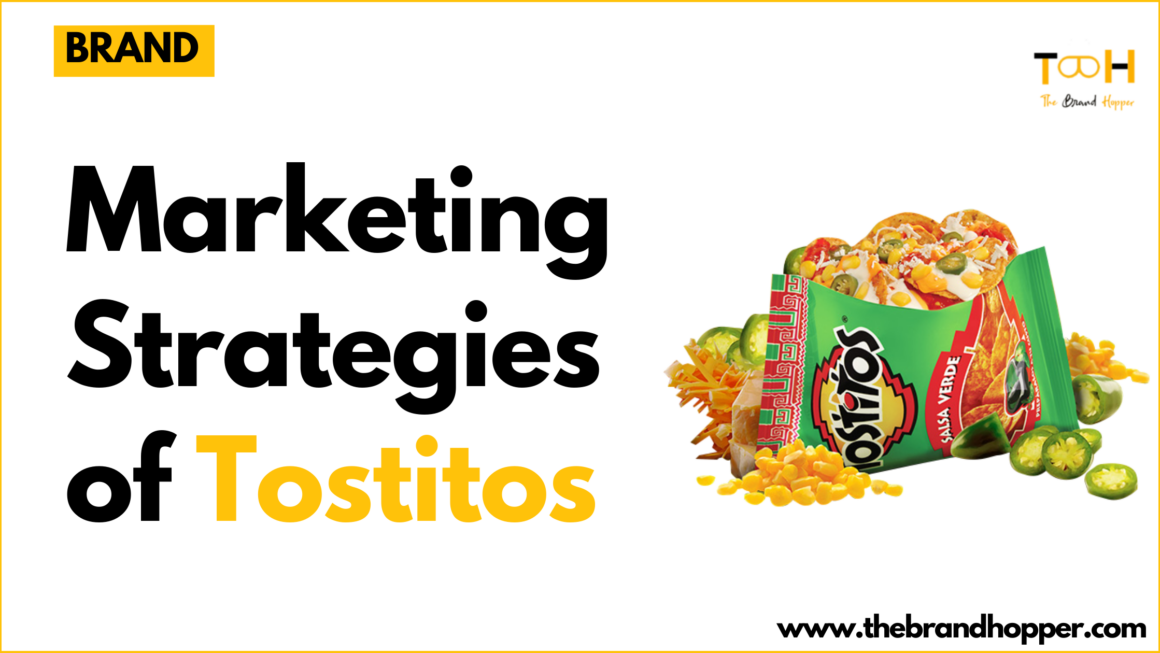PepsiCo, Inc., a multinational food, snack, and beverage corporation, has carved a unique space in the global consumer landscape. Headquartered in Purchase, New York, its legacy stretches back to 1898, when Caleb Bradham, a pharmacist, created the beverage that would become its namesake: Pepsi-Cola. From these humble beginnings, PepsiCo has evolved into a colossal force, shaping the food and beverage industry with its expansive portfolio and global reach.
Today, PepsiCo stands as a titan in the industry, boasting 23 brands, each generating over $1 billion in annual sales. This impressive roster encompasses iconic beverages like Pepsi, Gatorade, and Mountain Dew, each holding a distinct position in the market. Pepsi, the company’s flagship brand, competes fiercely with Coca-Cola in the cola wars, while Gatorade dominates the sports drink market, and Mountain Dew caters to the taste buds of those seeking a bold and citrusy flavor.
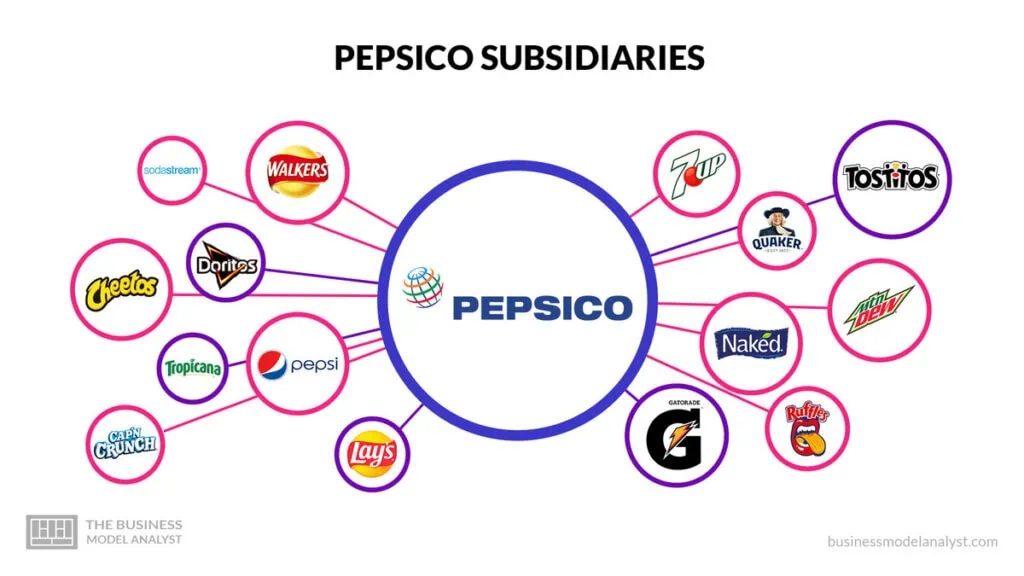
Beyond beverages, PepsiCo is a leader in the snack food industry. Lay’s potato chips, Doritos tortilla chips, and Cheetos cheese puffs are just a few of the well-loved snack brands that have become staples in households worldwide. Additionally, PepsiCo owns Quaker Oats Company, a household name synonymous with breakfast cereals like Quaker Oats and Aunt Jemima. This diverse portfolio caters to a wide range of consumer preferences, demographics, and consumption occasions.
PepsiCo’s reach extends far beyond the borders of the United States. With a presence in over 200 countries and territories, the company has established itself as a global food and beverage powerhouse. This extensive reach is not only impressive but also poses a complex challenge. PepsiCo must adapt its product offerings and marketing strategies to cater to the diverse tastes, cultural nuances, and economic realities of consumers across the globe.
Furthermore, PepsiCo actively engages in social responsibility initiatives through its PepsiCo Positive program. This program focuses on three key areas: sustainability, human capital, and access to nutrition. By investing in these areas, PepsiCo aims to create a positive impact on the environment, empower communities, and provide access to healthy and affordable food and beverages.
In conclusion, PepsiCo’s journey, from its humble beginnings as a single beverage company to its current status as a global food and beverage giant, is a testament to its innovation, adaptation, and commitment to consumer satisfaction. As the company continues to navigate the ever-evolving landscape of the food and beverage industry, its impact on consumers and communities worldwide is sure to remain significant.
Top Pepsico Competitors and Alternatives
PepsiCo faces competition on a few different fronts, depending on the specific product category. Here’s a breakdown of their main competitors:
Direct Beverage Competitors:
1. The Coca-Cola Company
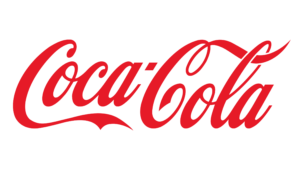
The Coca-Cola Company stands as one of PepsiCo’s primary competitors in the beverage industry, engaging in a longstanding rivalry for market share and consumer loyalty. Both companies operate globally, offering a diverse range of carbonated and non-carbonated beverages.
The competition between Coca-Cola and PepsiCo is often referred to as the “cola wars,” a marketing and economic battle that has shaped the industry for decades. Both giants continually invest in marketing campaigns, innovation, and strategic partnerships to maintain and expand their market presence. While Coca-Cola is renowned for its iconic cola products like Coca-Cola and Diet Coke, PepsiCo boasts a broader beverage portfolio, including Pepsi, Mountain Dew, Gatorade, and a variety of non-carbonated drinks. This intense competition has led to continuous product development, marketing creativity, and a constant push for market leadership in the global beverage market.
Competing Factors:
| Factor | Coca-Cola Company | PepsiCo |
|---|---|---|
| Core Products | Coca-Cola, Diet Coke, Sprite, Fanta | Pepsi, Diet Pepsi, Mountain Dew, Gatorade |
| Market Share | Strong global presence, significant market share | Competes closely for global market share |
| Diversification | Focus on carbonated beverages, expanding into non-carbonated | Broad portfolio, including snacks, juices, and sports drinks |
| Brand Recognition | Iconic brands with high global recognition | Recognizable brands with a diverse portfolio |
| Marketing Strategies | Emphasis on emotional branding, iconic advertising | Innovative marketing, celebrity endorsements, and partnerships |
| Distribution Channels | Extensive global distribution network | Strong presence in both traditional retail and emerging channels |
| Innovation and Trends | Constant product innovation, exploring health and wellness trends | Emphasis on healthier options, sustainable practices, and flavor innovations |
| Financial Performance | Stable financial performance with consistent growth | Strong financial performance with diversification benefits |
| Global Presence | Operating in numerous countries worldwide | A significant global footprint with diverse cultural adaptability |
| Community Engagement | Active in various community and social responsibility initiatives | Engages in social responsibility programs and sustainability efforts |
2. Mondelez International (North America)

Mondelez International, primarily recognized for its confectionery products, also competes with PepsiCo in the beverage sector, particularly in North America. While Mondelez is known for its well-loved brands such as Cadbury, Oreo, and Trident, it has a presence in the beverage industry through its ownership of certain beverage brands. PepsiCo, on the other hand, boasts a broader and more extensive beverage portfolio, including iconic brands like Pepsi, Mountain Dew, and Gatorade.
In the direct beverage competition, both companies strive to capture market share by offering a range of products that cater to diverse consumer preferences. The rivalry extends beyond traditional sodas to include non-carbonated beverages, such as sports drinks, juices, and other ready-to-drink options. The competition between Mondelez International and PepsiCo involves continuous efforts in marketing, distribution, and product innovation to secure consumer loyalty in North America’s dynamic beverage market.
Competing Factors:
| Factor | Mondelez International (North America) | PepsiCo |
|---|---|---|
| Core Products | Confectionery (Cadbury, Oreo), Beverages (Tang) | Carbonated and non-carbonated beverages, snacks |
| Market Share | Strong presence in confectionery, expanding in beverages | Dominant market share in global beverages, diversified snacks portfolio |
| Diversification | Primarily confectionery with some beverage brands | Broad portfolio, including snacks, juices, and sports drinks |
| Brand Recognition | Iconic brands in confectionery, but less prominent in beverages | Recognizable brands with a diverse portfolio |
| Marketing Strategies | Emphasizes emotional branding in confectionery, collaborative partnerships | Innovative marketing, celebrity endorsements, and partnerships |
| Distribution Channels | Strong distribution networks for confectionery and beverages | Extensive global distribution network for beverages and snacks |
| Innovation and Trends | Focus on confectionery innovations, exploring health and wellness trends | Emphasis on healthier beverage options, sustainability, and flavor innovations |
| Financial Performance | Stable financial performance with growth in confectionery | Strong financial performance with diversification benefits |
| Global Presence | Global presence with a focus on North America in beverages | A significant global footprint with diverse cultural adaptability |
| Community Engagement | Active in community and social responsibility initiatives | Engages in social responsibility programs and sustainability efforts |
Food and Snack Competitors
3. Nestlé
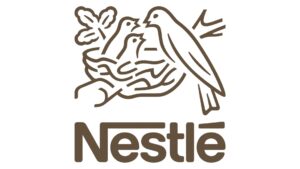
Nestlé, a multinational food and beverage conglomerate, is a formidable competitor for PepsiCo in the food and snack industry. Nestlé’s extensive product portfolio includes a wide range of globally recognized brands such as Nestlé, Kit Kat, Maggi, and Nescafé.
In the realm of food and snacks, Nestlé competes directly with PepsiCo, particularly in categories such as snacks, cereals, and convenience foods. While PepsiCo is known for its snacks division, including popular brands like Lay’s and Doritos, Nestlé brings its own strengths with a diverse lineup of products spanning chocolates, confectionery, coffee, and various culinary items. The competition between Nestlé and PepsiCo is marked by ongoing efforts in product innovation, marketing strategies, and distribution channels to capture consumer preferences and market share in the dynamic food and snack market.
Competing Factors:
| Factor | Nestlé | PepsiCo |
|---|---|---|
| Core Products | Chocolates, Confectionery, Coffee, Culinary products | Snacks (Lay’s, Doritos), Beverages (Pepsi), Cereals |
| Market Share | Global presence with a strong foothold in multiple categories | Dominant market share in snacks, significant presence in beverages |
| Diversification | Diverse product portfolio covering multiple food and beverage segments | Strong emphasis on snacks and beverages, with diversification in other areas |
| Brand Recognition | Iconic global brands in various categories | Recognizable brands with a focus on snacks and beverages |
| Marketing Strategies | Emphasizes brand loyalty, sustainability, and health-oriented campaigns | Innovative marketing, celebrity endorsements, and strong brand partnerships |
| Distribution Channels | Extensive global distribution network for various product categories | Strong presence in both traditional retail and emerging channels for snacks and beverages |
| Innovation and Trends | Active in product innovation and adaptation to health and wellness trends | Emphasis on healthier snack options, sustainable practices, and flavor innovations |
| Financial Performance | Stable financial performance with diversified revenue streams | Strong financial performance with a focus on the snacks and beverages market |
| Global Presence | A significant global footprint with diverse cultural adaptability | Global presence with a focus on North America, Europe, and emerging markets |
| Community Engagement | Active in community and social responsibility initiatives | Engages in social responsibility programs, especially in sustainability efforts |
4. Unilever

Unilever, a multinational consumer goods company, poses a formidable competition to PepsiCo in the food and snack industry. With a vast and diverse product portfolio, Unilever is known for brands such as Knorr, Magnum, Lipton, and Ben & Jerry’s.
In the realm of food and snacks, Unilever competes directly with PepsiCo, offering a variety of food products, ice creams, and beverages. While PepsiCo has a strong presence in the snacks market with brands like Lay’s and Doritos, Unilever brings its own strengths in the global market, emphasizing a wide array of food products and ice creams. The competition between Unilever and PepsiCo is characterized by strategic product innovation, marketing initiatives, and distribution strategies as they vie for consumer attention and market share in the dynamic food and snack industry.
Competing Factors:
| Factor | Unilever | PepsiCo |
|---|---|---|
| Core Products | Food products, Ice creams, Beverages, Home care and personal care | Snacks (Lay’s, Doritos), Beverages (Pepsi), Cereals |
| Market Share | Global presence with a diverse product range | Dominant market share in snacks, significant presence in beverages |
| Diversification | Diverse portfolio covering multiple consumer goods categories | Strong emphasis on snacks and beverages, with diversification in other areas |
| Brand Recognition | Iconic global brands across various consumer segments | Recognizable brands with a focus on snacks and beverages |
| Marketing Strategies | Emphasis on sustainability, social responsibility, and health-oriented campaigns | Innovative marketing, celebrity endorsements, and strong brand partnerships |
| Distribution Channels | Extensive global distribution network for various product categories | Strong presence in both traditional retail and emerging channels for snacks and beverages |
| Innovation and Trends | Actively engages in sustainable and health-conscious product development | Emphasis on healthier snack options, sustainable practices, and flavor innovations |
| Financial Performance | Stable financial performance with diversified revenue streams | Strong financial performance with a focus on the snacks and beverages market |
| Global Presence | A significant global footprint with diverse cultural adaptability | Global presence with a focus on North America, Europe, and emerging markets |
| Community Engagement | Active in community and social responsibility initiatives | Engages in social responsibility programs, especially in sustainability efforts |
5. Kraft Heinz Company
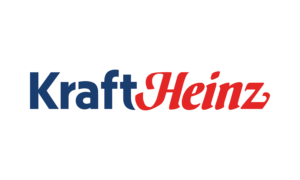
Kraft Heinz Company, a major player in the food industry, stands as a significant competitor to PepsiCo in the food and snack sector. Known for its extensive portfolio of iconic brands, including Kraft, Heinz, Oscar Mayer, and Philadelphia, Kraft Heinz competes directly with PepsiCo in categories such as condiments, snacks, and convenience foods.
While PepsiCo has a stronghold in the snacks market with brands like Lay’s and Doritos, Kraft Heinz brings its own strengths, particularly in condiments, sauces, and processed foods. The competition between Kraft Heinz and PepsiCo involves continuous efforts in product innovation, marketing strategies, and distribution channels to secure consumer loyalty in the ever-evolving food and snack market.
Competing Factors:
| Factor | Kraft Heinz Company | PepsiCo |
|---|---|---|
| Core Products | Condiments, Sauces, Processed Foods | Snacks (Lay’s, Doritos), Beverages (Pepsi), Cereals |
| Market Share | Strong presence in condiments and sauces, globally recognized brands | Dominant market share in snacks, significant presence in beverages |
| Diversification | Focus on condiments, processed foods, and sauces | Strong emphasis on snacks and beverages, with diversification in other areas |
| Brand Recognition | Iconic brands in condiments and processed foods | Recognizable brands with a focus on snacks and beverages |
| Marketing Strategies | Emphasizes product quality, recipe innovation, and brand loyalty | Innovative marketing, celebrity endorsements, and strong brand partnerships |
| Distribution Channels | Strong global distribution network for various product categories | Strong presence in both traditional retail and emerging channels for snacks and beverages |
| Innovation and Trends | Focus on product quality, health-conscious options, and adapting to culinary trends | Emphasis on healthier snack options, sustainable practices, and flavor innovations |
| Financial Performance | Stable financial performance with a focus on operational efficiency | Strong financial performance with a focus on the snacks and beverages market |
| Global Presence | A significant global footprint with diverse cultural adaptability | Global presence with a focus on North America, Europe, and emerging markets |
| Community Engagement | Engages in community initiatives, sustainability programs, and social responsibility | Engages in social responsibility programs, especially in sustainability efforts |
Alternative Beverage and Snack Options:
6. Healthy/Organic Brands
In the realm of healthy and organic food products, various brands have emerged such as Annie’s and KIND Snacks, as competitors to PepsiCo, challenging the traditional food and snack landscape. Consumers’ increasing focus on health and wellness has driven demand for alternatives to conventional snacks and beverages. Healthy and organic brands emphasize natural ingredients, nutritional value, and sustainability, often catering to a more health-conscious audience.
While PepsiCo has made efforts to offer healthier options within its portfolio, such as Baked Lay’s and Tropicana juices, these specialized brands concentrate exclusively on the health and organic segment. This niche competition has led to a dynamic market where companies like Nature’s Path, Clif Bar, and Kind Snacks compete with PepsiCo by providing organic, non-GMO, and nutritionally dense alternatives in the snack and food categories.
Competing Factors:
| Factor | Healthy/Organic Brands | PepsiCo |
|---|---|---|
| Core Products | Organic snacks, bars, cereals, and beverages | Traditional snacks (Lay’s, Doritos), Beverages (Pepsi), Healthier options (Tropicana) |
| Market Share | Growing presence in the health and organic food market | Dominant market share in snacks, significant presence in beverages |
| Diversification | Specialized in healthy and organic products | Broad portfolio, including traditional snacks and beverages |
| Brand Recognition | Recognizable in the health-conscious consumer segment | Well-established brands with a focus on traditional snacks and beverages |
| Marketing Strategies | Emphasis on natural ingredients, nutritional benefits, and sustainability | Innovative marketing, celebrity endorsements, and healthier product options |
| Distribution Channels | Often available in specialty health food stores, natural markets | Widespread distribution in both traditional retail and emerging channels |
| Innovation and Trends | Constant innovation in health-conscious product development | Emphasis on healthier snack options, sustainable practices, and flavor innovations |
| Financial Performance | Growing market share with a focus on health trends | Strong financial performance with diversification benefits |
| Global Presence | Varies but often expanding globally in the health food sector | A significant global footprint with diverse cultural adaptability |
| Community Engagement | Active in promoting sustainability, social responsibility, and health initiatives | Engages in social responsibility programs, especially in sustainability efforts |
7. Plant-Based Food Companies
The rise of plant-based food companies has introduced a new dimension to the competition within the food and snack industry, challenging traditional players like PepsiCo. As consumers increasingly adopt plant-based diets for health, environmental, and ethical reasons, companies specializing in plant-based alternatives have gained traction.
These companies offer a range of products such as plant-based snacks, beverages, and substitutes for traditional meat and dairy items. In this context, PepsiCo faces competition from plant-based brands like Beyond Meat, Impossible Foods, and Oatly, which provide innovative, sustainable, and cruelty-free alternatives to conventional snacks and beverages. While PepsiCo has expanded its portfolio to include some plant-based options, these specialized companies focus exclusively on meeting the growing demand for plant-based, cruelty-free, and environmentally conscious food choices.
Competing Factors:
| Factor | Plant-Based Food Companies | PepsiCo |
|---|---|---|
| Core Products | Plant-based snacks, beverages, and meat substitutes | Traditional snacks (Lay’s, Doritos), Beverages (Pepsi), Some plant-based options |
| Market Share | Growing presence in the plant-based food market | Dominant market share in snacks, significant presence in beverages |
| Diversification | Specialized in plant-based alternatives | Broad portfolio, including traditional snacks and beverages |
| Brand Recognition | Recognizable in the plant-based and eco-conscious consumer segment | Well-established brands with a focus on traditional snacks and beverages |
| Marketing Strategies | Emphasis on sustainability, health benefits, and cruelty-free options | Innovative marketing, celebrity endorsements, and efforts towards sustainability |
| Distribution Channels | Often available in specialty health food stores, mainstream retail, and quick-service restaurants | Widespread distribution in both traditional retail and emerging channels |
| Innovation and Trends | Pioneering innovation in plant-based alternatives, catering to dietary trends | Emphasis on healthier snack options, sustainable practices, and flavor innovations |
| Financial Performance | Growing market share with a focus on plant-based trends | Strong financial performance with diversification benefits |
| Global Presence | Expanding globally, with a focus on plant-based and eco-conscious markets | A significant global footprint with diverse cultural adaptability |
| Community Engagement | Active in promoting sustainability, environmental consciousness, and ethical practices | Engages in social responsibility programs, especially in sustainability efforts |
In the dynamic landscape of the food and beverage industry, PepsiCo faces formidable competition from a diverse array of players. From traditional rivals like The Coca-Cola Company to emerging challenges posed by plant-based, healthy, and smaller craft producers, PepsiCo navigates a complex marketplace. The competition extends beyond the cola wars into the realms of snacks, organic alternatives, and artisanal creations. As consumers’ preferences evolve, so do the strategies and innovations of these competitors. The constant interplay between giants and niche players keeps the industry vibrant, fostering creativity, sustainability, and a continuous quest for consumer satisfaction. In this dynamic environment, PepsiCo’s ability to adapt and innovate remains crucial, ensuring its relevance and competitive edge amid an ever-changing landscape.
Also Read: Marketing Strategies And Brand Campaigns of Pepsico
To read more content like this, subscribe to our newsletter

